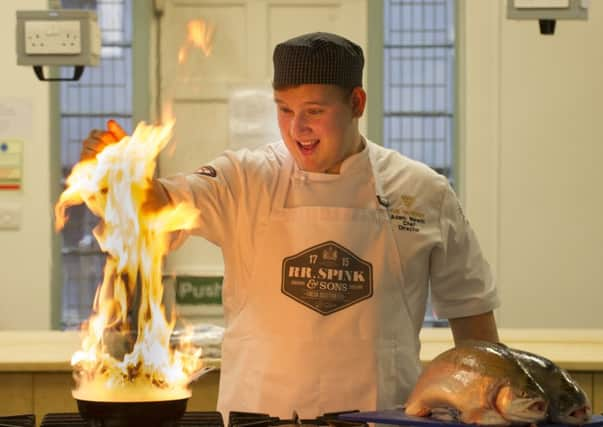Stephen Jardine: A job that's good for the soul not the pocket


Next week leaders from the hospitality sector will gather in Edinburgh for a Scottish Parliament election hustings.
Representatives from the major parties will be quizzed on their views on everything from a tourism tax to airline passenger duty. It’s likely the issue of skills and recruitment will also crop up.
Advertisement
Hide AdAdvertisement
Hide AdTourism and hospitality is now one of Scotland’s biggest employers but getting the right calibre of staff and keeping them is an ongoing challenge.
People go into the hospitality business for a huge variety of reasons. If you are looking for a job that is creative, offers lots of human contact and opportunities to work almost anywhere in the world, few careers can offer what it has to offer. But if you want to get rich quick, it’s fair to say hospitality is not for you.
According to research for Deutsche Bank, Tourism, Hospitality and Leisure has the highest proportion of jobs paying the minimum wage of any employment sector. So this month’s introduction of a National Living Wage is good news for them.
Hospitality jobs traditionally tend to offer added value. From free staff meals to live-in accommodation, perks helped make up for the low pay.
That’s fine for students on a gap year but for people hoping to make a career in hospitality and have a life, salary inevitably becomes an issue and that is when some drop out and switch careers.
Often they are people with real skills who have developed great experience but are lost to the industry because of pay.
The living wage will hopefully keep more of them progressing down a career path in hospitality but that needs to be properly rewarded.
Responsibility for that lies with employers although some would prefer to switch the focus to consumers. In London a couple of weeks ago, every restaurant I visited imposed a 15 per cent discretionary service charge. The subtext is we should be supplementing wages to make a career viable.
Advertisement
Hide AdAdvertisement
Hide AdThere are signs that the “discretionary” – imposed – service charge is now spreading to Scotland and as more chains open here, it is likely to start to appear on bills.
Before that happens, consumers need to make a stand and just say no. Tips should be a way of saying thank you for something special and exceptional, not a standard surcharge mechanism to ensure your waiter has enough fare for the night bus home.
Responsibilty for staff earning enough begins and ends with employers.
Early this year acclaimed New York restaurateur Danny Meyer scrapped tipping in his restaurants and instead increased prices and passed the benefit on to staff through higher wages. Applications for chef jobs with him went up 4,000 per cent.
In the current economic climate, that’s not easy. The real answer is to lower hospitality VAT. We have one of the highest rates in Europe and it contributes to a sector that is more expensive than it should be. By lowering VAT for hospitality here, as many other countries have done, operators can maintain prices but pass the benefit to staff as better wages. Then we could have the hospitality sector we want and workers can afford to make it a career.